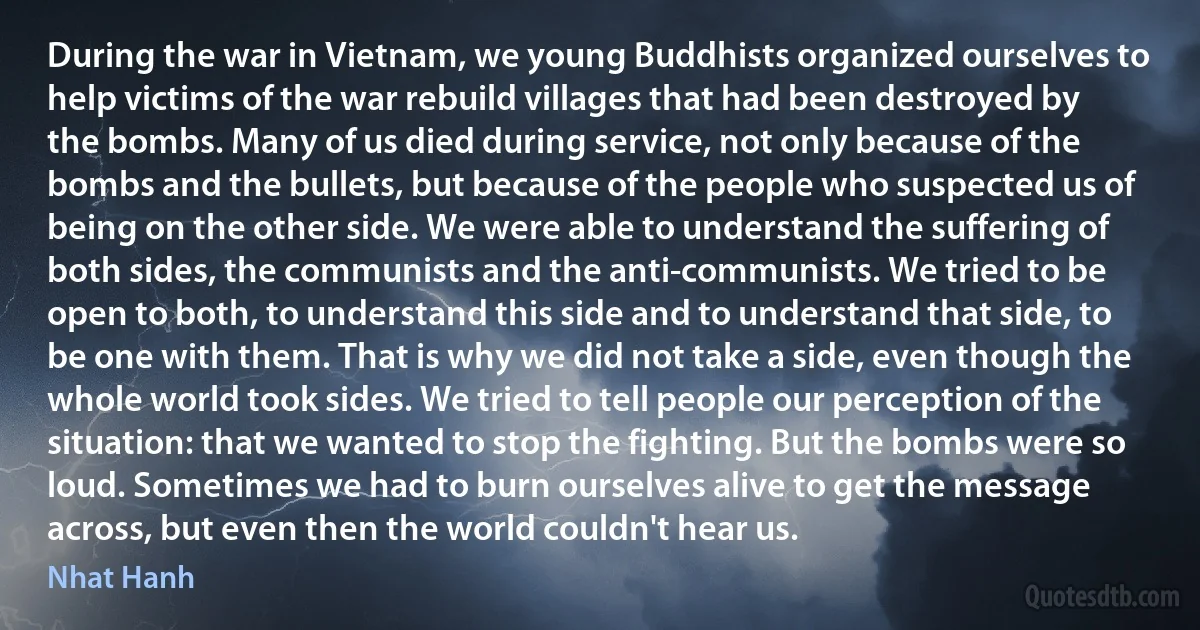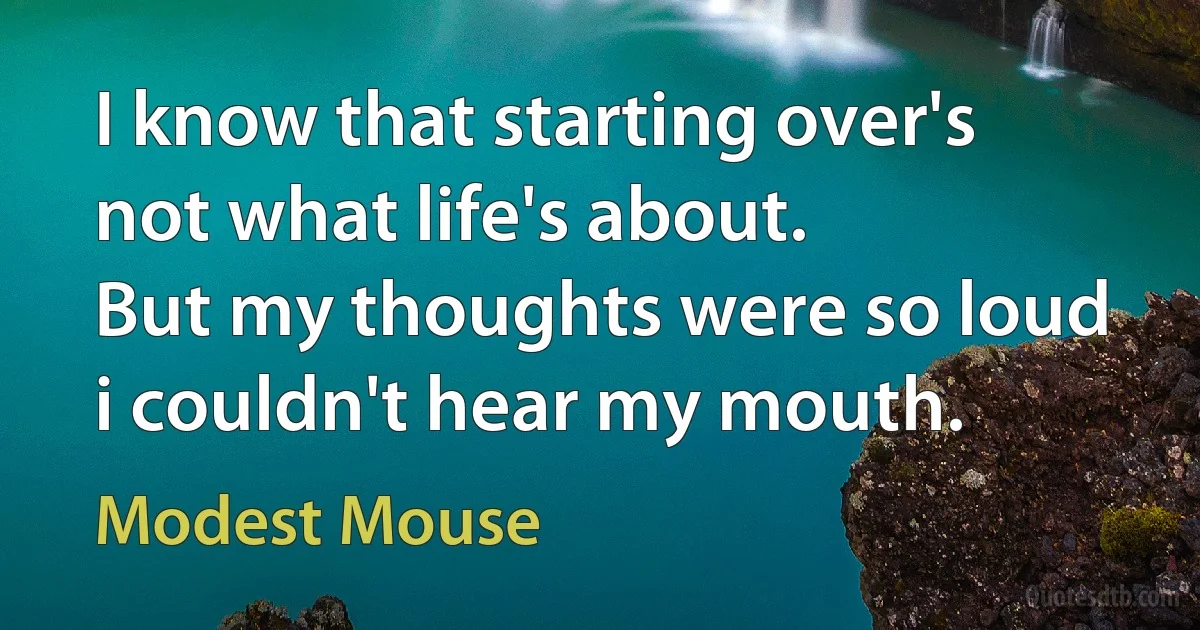Loud Quotes - page 27
In the first place I urge upon you a full recognition of the magnitude of the evils with which we have to deal; in the second place I insist on the right of those who suffer to redress (cheers); and in the third place I assert the duty of society as a whole to secure the comfort and welfare of all its individual members. As a consequence of this, I desire to submit to you that it belongs to the authority and to the duty of the State-that is to say, of the whole population acting through their chosen representatives-to utilise for this purpose all local experience and all local organisation, to protect the weak, to provide for the poor, to redress the inequalities of our social system, to alleviate the harsh conditions of the struggle for existence, and to raise the average enjoyments of the majority of the population. (Loud cheers.)

Joseph Chamberlain
You may carry fire and sword into the midst of peace and industry-such a war of the strongest Government in the world against this weak little Republic, and the strongest Government in the world, with untold wealth and inexhaustible resources, will bring you no glory. (Renewed and prolonged cheering.) It will bring you no profit but mischief, and it will be wrong. (Hear, hear.) You may make thousands of women widows and thousands of children fatherless. It will be wrong. (Cheers.) You may add a new province to your Empire. It will still be wrong. (Renewed cheers.) You may give greater buoyancy to the South African stock and share market. (Hear, hear.) You may create South African booms. You may send the price of Mr. Rhodes's Chartereds up to the point beyond the dream of avarice. Yes, even then it will be wrong. (Loud and continued cheering.)

John Morley, 1st Viscount Morley of Blackburn
[Rousseau's educational theories had persuaded teachers] to dispense with the structured systems of learning which have been so successful in the past. [The result is] the belief, taught by Mr Roy Jenkins, that a permissive is a civilised society... A facile rhetoric of total liberty and of costless, superficial universal protest has really been a cover for irresponsibility. Our loud talk about the community overlies the fact that we have no community. We talk about neighbourhoods and all too often we have no neighbours. We go on about the home when we only have dwelling places containing television sets. It is the absence of a frame of rules and community, place and belonging, responsibility and neighbourliness that makes it possible for people to be more lonely than in any previous stage in our history. Vast factories, huge schools, sprawling estates, sky-scraping apartment blocks; all these work against our community and our common involvement one with another.

Keith Joseph
The old murals came from the heart,” Zima said. "I painted on a huge scale because that was what the subject matter seemed to demand.”
"It was good work,” I said.
"It was hack work. Huge, loud, demanding, popular, but ultimately soulless. Just because it came from the heart didn't make it good.

Alastair Reynolds
As soon as I arrived at Cornell, I became aware of Dick as the liveliest personality in our department. In many ways he reminded me of Frank Thompson. Dick was no poet and certainly no Communist. But he was like Frank in his loud voice, his quick mind, his intense interest in all kinds of things and people, his crazy jokes, and his disrespect for authority. I had a room in a student dormitory and sometimes around two o'clock in the morning I would wake up to the sound of a strange rhythm pulsating over the silent campus. That was Dick playing his bongo drums. Dick was also a profoundly original scientist. He refused to take anybody's word for anything. This meant that he was forced to rediscover or reinvent for himself almost the whole of physics. It took him five years of concentrated work to reinvent quantum mechanics. He said that he couldn't understand the official version of quantum mechanics that was taught in textbooks, and so he had to begin afresh from the beginning.

Richard Feynman
In the tightly controlled and airproof "vertical of power" that is Vladimir Putin's Russia, even a handful of dissenting voices in legislative institutions-especially when they are loud and persistent-can present a serious threat to the system. Such was the voice of the late Boris Nemtsov.

Vladimir Vladimirovich Kara-Murza
When the [Mystical Shit] CD first started to take shape, I was very unsure about what was happening-I wasn't sure I liked what these guys were coming up with. I missed Dogbowl's melodies, and I didn't like that it was loud. But other people seemed to like it a lot, and at that time, that was important to me, so I went with it. As time went by, I started to appreciate the oddity of me in a rock band. Unfortunately, I didn't really embrace the idea fully until that band had broken up. Nowadays, I can look back and think it was fun and funny that I was in a rock band, but at the time, it bothered me a lot and I complained about it all the time, but I lacked the moral character to do anything about it.

John S. Hall
Clemente was an emotional man, and that was his beauty. It drove him not only to physical anguish, but also to nearly incredible performances on the field as well as to the good work he was engaged in at his death. Often, although not so much in his maturing years, he seemed almost paranoid in his complaints against this or that, but when he said he loved mankind you had to believe him, because even the heat of his most bitter outburst almost always blew over, and where he had been loud, he would suddenly become reasonable and even eloquent. A man to confuse you? Yes, absolutely, but only because man's full range of passions ran strong in him. Cunning he was not. Honest he was. And the proof is that he was no honorary chairman of that relief committee for Nicaragua -- he was no figurehead chairman in name only; he was not merely a celebrity lending his prestige but not his heart or his labor to a cause. Honorary chairmen do not disappear into the Atlantic in the performance of duty.

Roberto Clemente
Something's the matter. What's the matter? What's the matter? She asked herself. She didn't know what she looked like and was not curious. But suddenly she saw her hands and thought with a clarity as simple as it was dazzling, "These hands belong to me. These my hands." Next she felt a knocking in her chest and discovered something else new: her own heartbeat. Had it been there all along? This pounding thing? She felt like a fool and began to laugh out loud.

Toni Morrison
Over the past two years, as I have moved to break the betrayal of my own silences and to speak from the burnings of my own heart, as I have called for radical departures from the destruction of Vietnam, many persons have questioned me about the wisdom of my path. At the heart of their concerns this query has often loomed large and loud: Why are you speaking about war, Dr. King? Why are you joining the voices of dissent? Peace and civil rights don't mix, they say. Aren't you hurting the cause of your people, they ask? And when I hear them, though I often understand the source of their concern, I am nevertheless greatly saddened, for such questions mean that the inquirers have not really known me, my commitment or my calling. Indeed, their questions suggest that they do not know the world in which they live.

Martin Luther King Jr.
He was branded by his age as a sorcerer, because the cures he made were marvellous. Three centuries later, Baron Du Potet was also accused of sorcery and demonolatry by the Church of Rome, and of charlatanry by the academicians of Europe. As the fire-philosophers say, it is not the chemist who will condescend to look upon the "living fire" otherwise than his colleagues do. "Thou hast forgotten what thy fathers taught thee about it-or rather, thou hast never known... it is too loud for thee!" (Robert Fludd: "Treatise III.") A work upon magico-spiritual philosophy and occult science would be incomplete without a particular notice of the history of animal magnetism, as it stands since Paracelsus staggered with it the schoolmen of the latter half of the sixteenth century.

Paracelsus
The moon was eclipsed at the time of His birth, and the people of Nadia were then engaged, as is usual on such occasions, in bathing in the Bhagirathi with loud cheers of Haribol... Mahaprabhu was a beautiful child and the ladies of the town came to see Him with presents. His mother's father, Pundit Nilambar Chakravarti, a renowned astrologer, foretold that the child would be a great personage in time... The ladies of the neighborhood styled Him Gour Hari on account of His golden complexion, and His mother called Him Nimai on account of the nimba tree near which He was born. Beautiful as the lad was, everyone heartily loved to see Him every day.

Chaitanya Mahaprabhu


